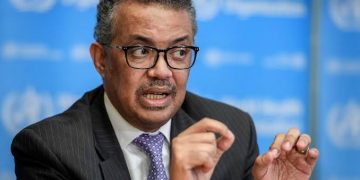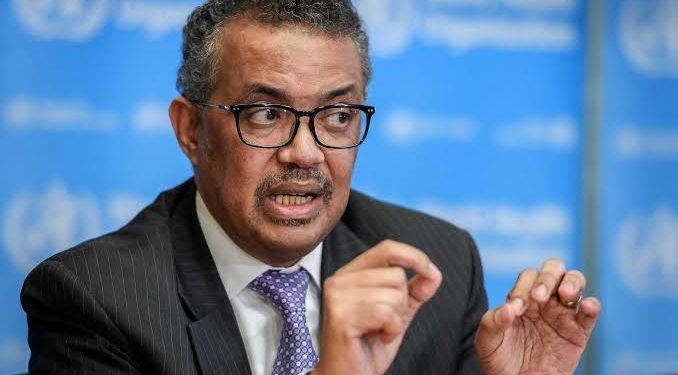The World Health Organization (WHO) has declared that monkeypox is no longer a global public health emergency, nearly a year after the initial alarm was raised.
While the virus remains a concern and further outbreaks are possible, the highest level of alert has been lifted, according to the WHO.
Tedros Adhanom Ghebreyesus, the WHO’s director-general, urged countries “to remain vigilant in their efforts to combat the disease.”
Monkeypox, also known as Mpox, is caused by the monkeypox virus, which belongs to the same virus family as smallpox but is significantly less severe.
Initial symptoms include fever, headaches, swelling, back pain, and muscle aches.
As the fever subsides, a rash may develop, typically starting on the face and then spreading to other parts of the body, particularly the palms of the hands and soles of the feet.
The virus can be transmitted through close contact with an infected individual.
Those who have the virus should refrain from sexual activity while exhibiting symptoms to prevent its spread.
Vaccines are available and offer protection against monkeypox.
During the global outbreak, over 87,000 cases and 140 deaths were reported across 111 countries, according to the WHO.
However, the number of cases has significantly decreased in the past three months, with nearly 90% fewer cases recorded compared to the previous three-month period, Tedros stated.
In the United Kingdom, only ten cases have been reported since the start of the year.
Dr. Katy Sinka, Head of Sexually Transmitted Infections at the UK Health Security Agency, urged eligible individuals to come forward and receive the vaccine before the summer months for maximum protection.
Administration The first doses of the vaccine will conclude on June 16, with both doses ending in late July.



































